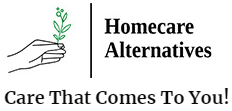The decision to hire an in-home caregiver is often driven by a desire to provide personalized care for a loved one in the comfort of their own home. Beyond the immediate advantages of enhanced well-being and comfort, there are additional benefits that might not be immediately apparent. One such advantage is the potential for tax deductions, both at the federal and state levels. In this comprehensive guide, we will explore the intricacies of hiring an in-home caregiver and how it can be a strategic financial decision, offering not only emotional relief but also fiscal advantages.
Tax Deductions for In-Home Caregiving
1. Federal Tax Deductions
The Internal Revenue Service (IRS) offers potential tax benefits for individuals who hire in-home caregivers under certain conditions.
- Tip 6: Qualifying for Medical Expense Deductions In-home care expenses may qualify as medical expenses, allowing individuals to deduct a portion of these expenses if they exceed a certain percentage of their adjusted gross income (AGI).
- Tip 7: Dependent Care Credit If the care recipient qualifies as a dependent, the caregiver expenses may be eligible for the Child and Dependent Care Credit, providing a tax credit for a portion of the expenses incurred.
- Tip 8: Health Savings Accounts (HSAs) Contributions to Health Savings Accounts can be used to pay for in-home care services, providing a tax-advantaged way to cover caregiving expenses.
2. State-Specific Tax Benefits
In addition to federal deductions, several states offer their own tax incentives for in-home caregiving.
- Tip 9: State Tax Credits Some states offer tax credits or deductions for caregiving expenses, providing additional financial relief for those hiring in-home caregivers.
- Tip 10: Medicaid Waiver Programs Medicaid waiver programs in certain states may cover in-home care services, offering financial assistance to eligible individuals.
- Resource: State Tax Agencies Check with your state’s tax agency or consult with a tax professional to understand the specific tax benefits available in your location.
Documenting and Reporting Expenses
1. Keeping Detailed Records
Accurate and detailed record-keeping is crucial when it comes to claiming tax deductions for in-home caregiving expenses.
- Tip 11: Maintain Receipts and Invoices Keep all receipts and invoices related to in-home care expenses. This documentation is essential when reporting deductions.
- Tip 12: Track Hours and Services Maintain a log of the hours worked and services provided by the caregiver. This information is valuable for calculating eligible deductions.
2. IRS Form 2441
When claiming the Child and Dependent Care Credit, individuals must use IRS Form 2441 to report qualifying expenses.
- Tip 13: Consult with a Tax Professional Given the complexity of tax regulations, consulting with a tax professional can ensure accurate reporting and maximize potential deductions.
- Resource: IRS Publications Refer to IRS publications, including Publication 503 and Publication 502, for detailed information on claiming tax benefits related to caregiving.
Exploring Other Financial Assistance Programs
1. Long-Term Care Insurance
Long-term care insurance policies may cover some or all of the costs associated with in-home caregiving. Understanding the terms and coverage of these policies is essential for maximizing financial assistance.
- Tip 14: Review Policy Details Thoroughly review the long-term care insurance policy to understand coverage limitations, reimbursement processes, and any requirements for in-home care eligibility.
- Tip 15: Consult with an Insurance Specialist Engage the services of an insurance specialist or financial advisor to navigate the complexities of long-term care insurance policies.
2. Veterans’ Benefits
For veterans, the Department of Veterans Affairs (VA) provides various benefits that may cover in-home care services.
- Tip 16: Explore VA Aid and Attendance The Aid and Attendance program offers additional financial assistance to eligible veterans and their spouses who require in-home care or assistance with daily living activities.
- Resource: VA Benefits Advisors Veterans can consult with VA benefits advisors to explore available programs and determine eligibility for financial assistance.
Overcoming Challenges and Maximizing Benefits
1. Addressing Affordability Concerns
While in-home caregiving can be financially advantageous in the long run, the initial cost may raise affordability concerns for some families.
- Tip 17: Explore Community Resources Local community organizations, nonprofits, and religious institutions may offer financial assistance or low-cost caregiving services.
- Tip 18: Negotiate Rates Engage in open and honest communication with potential caregivers to negotiate rates based on the care recipient’s needs and the caregiver’s qualifications.
2. Planning for the Future
Effective financial planning is key to navigating the costs of in-home caregiving and maximizing available benefits.
- Tip 19: Include Caregiving Costs in Financial Plans When creating long-term financial plans, include the anticipated costs of in-home caregiving to ensure adequate preparation for potential expenses.
- Tip 20: Periodic Review of Tax Regulations Tax regulations may evolve, impacting the eligibility and extent of deductions. Regularly review tax regulations and adapt financial plans accordingly.
Hiring an in-home caregiver is not only a compassionate choice for the well-being of a loved one but can also be a strategic financial decision. By understanding and navigating the various tax deductions and financial assistance programs available at both the federal and state levels, individuals can alleviate the financial burden associated with caregiving.
As the caregiving landscape continues to evolve, staying informed about the latest regulations, seeking professional advice, and proactively addressing financial concerns are crucial steps towards creating a sustainable and supportive caregiving environment. In the intersection of caregiving and tax benefits, individuals have the opportunity to not only enhance the quality of life for their loved ones but also make sound financial decisions that contribute to their own fiscal well-being.
Homecare Alternatives, Gainesville, Florida 352-681-8993

